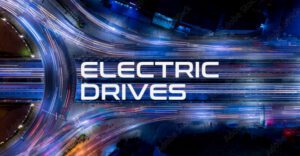Ford Motor Company and the Volkswagen Group have announced they will be expanding their emobility partnership. Ford plans to produce another electric model for the European market based on Volkswagen’s MEB electric platform.
This is big news as two legacy carmakers, and often fierce competitors, join forces. We are seeing more and more collaborations with big car manufacturers when it comes to speeding up their transition to electric vehicles (EVs).
Just recently, Renault, Nissan and Mitsubishi announced their partnership to progress their electrification programmes. The big question is whether these collaborations are simply to help each other, which makes financial sense, or is this a way of trying to take on the mighty Tesla, who currently dominate global sales of electric vehicles?
The automaker will double its planned MEB volume to 1.2 million units over a six-year timeframe. The agreement was signed as part of the strategic alliance between Volkswagen and Ford, which includes emobility, commercial vehicles and autonomous driving.
Designed as an open vehicle platform, the MEB (Modular Electric Toolkit) electric platform allows car manufacturers to electrify their portfolio quickly and cost-effectively.

Thomas Schmall, Volkswagen Group Board of Management member for Technology and CEO of Volkswagen Group Components, said: “Profitability and speed are now crucial for finally achieving the breakthrough of emobility in Europe. We are tackling both together with Ford. Today’s agreement will further accelerate the electrification of the two companies.
“This is also proof of the strengths of the MEB, which provides a unique package of high-tech, competitive costs and speed in implementing projects. The electric platform is thus the ideal solution for companies looking to speed up their electrification.”
The first Ford model to use the MEB platform will be an all-electric crossover. It is expected to roll off the assembly line at the Ford Electrification Center in Cologne from 2023 and will give a further push to the automaker’s emobility strategy.
Ford had originally planned just one model based on MEB with a total volume of around 600,000 units. The company has not yet released any details about the second planned model.
Stuart Rowley, Chair of Ford of Europe, said: “Our strategic alliance with Volkswagen is an important element of Ford’s commitment to offer an all-electric range of vehicles that are uniquely Ford and designed to meet the mobility needs of a modern Europe that is leading the fight against climate change.”
For Volkswagen, expanding the collaboration with Ford will take it one step closer to becoming a platform supplier for electric vehicles as a further pillar in addition to the core business.

The MEB platform, which can be used by various brands and manufacturers, already provides the technology base for ten electric models from five brands. Used to build approximately 300,000 units in 2021, it is one of the leading electric platforms worldwide.
The MEB offers a high level of competitiveness while providing considerable freedom in design and model development. It covers a wide range of segments and vehicle types, from compact vehicles up to sports utility vehicles (SUVs) and vans.
The most recent model based on the MEB is the Volkswagen ID. Buzz, which celebrated its world premiere last week. The MEB also offers a much more competitive cost base compared to other electric vehicles due to the utilisation of economies of scale worldwide. It is mainly manufactured at the German locations of Volkswagen Group Components in Braunschweig, Kassel and Salzgitter.



